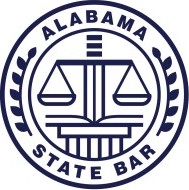Procedural Distinctions in Alabama Probation Revocation Proceedings
Navigating the complexities of the criminal justice system is never easy, and the rules change significantly depending on where you stand in the process. Before a conviction, defendants enjoy the full range of constitutional protections, including the presumption of innocence and the requirement that the prosecution prove guilt beyond a reasonable doubt. However, after a conviction, especially when probation is involved, the standards shift dramatically. Courts can revoke probation with less evidence and fewer procedural protections than are required to convict someone in the first place.
A recent case out of Alabama highlights just how critical these procedural differences can be. The defendant in this case was originally convicted of a crime and later placed on probation. However, his probation officer later alleged that he had violated the terms of his probation by committing multiple new offenses, including third-degree theft, attempting to elude, first-degree domestic violence (first-degree burglary), and third-degree domestic violence (third-degree assault). Given these allegations, the state moved to revoke his probation.
At the probation revocation hearing, the circuit court heard from a Mobile Police Department officer about only one of the alleged violations: the domestic violence charge. The state requested that the court take judicial notice of a prior finding of probable cause in district court regarding this charge. The defense objected, arguing that the court had no non-hearsay evidence to support revocation. The victim did not testify at the hearing, and the evidence presented consisted primarily of statements made in a prior preliminary hearing and the observations of a police officer who did not witness the alleged offense firsthand. Despite these objections, the court proceeded to revoke the defendant’s probation.
On appeal, the defendant argued that the lower court erred in revoking his probation without holding a proper hearing and without sufficient non-hearsay evidence. Alabama law requires that before revoking probation, a court must hold a hearing that provides basic due process protections, including the right to present evidence and confront witnesses. The Alabama Court of Criminal Appeals agreed, finding that the lower court failed to meet these procedural requirements. Because no live testimony was taken at the hearing and the decision rested solely on prior judicial findings and unsworn statements, the appellate court determined that the revocation was improper. As a result, the defendant’s probation was reinstated—at least for the time being. If the state wishes to revoke his probation, it must now do so through a properly conducted hearing that meets due process standards.
This case highlights an important legal reality: while the standard for revoking probation is lower than the standard for obtaining a conviction, there are still rules that courts must follow. Unlike at trial, where the state must prove guilt beyond a reasonable doubt, a probation revocation only requires the court to be “reasonably satisfied” that a violation occurred. However, this does not mean that probationers lose all of their legal protections. Alabama law is clear that hearsay alone cannot be the basis for revocation, and due process still applies in these proceedings.
Are You Facing a Revocation Hearing?
If you are facing new criminal charges or if you you have a pending probation violation hearing, having an experienced defense attorney is crucial. A skilled Alabama defense attorney can challenge weak evidence, ensure that proper procedures are followed, and fight to protect a defendant’s rights at every stage of the process. Whether you are seeking to avoid a conviction in the first place or defending against a probation revocation, legal representation can make all the difference. Stoves Law Firm is dedicated to helping clients navigate the toughest legal challenges and achieve the best possible outcomes in their cases. Don’t leave your future to chance—reach out to Stoves Law Firm today for the legal defense you need by calling 205-823-7233.





